The strawberry yield is primarily affected by the nutritional value of the soil in which it grows. The most important first and last feeding, as they allow the plant to stock up on forces, form the root system for the formation of inflorescences and berries. The main fertilizing is the first fertilizing before planting, but for strawberries, which have been growing in one place for several years, it is important to use special schemes and formulations. They will maintain the nutritional value of the soil, allow the plant to give a good harvest every year.
Content
Strawberry Nutrition Needs
Good fruiting requires many nutritional components, but most of all:
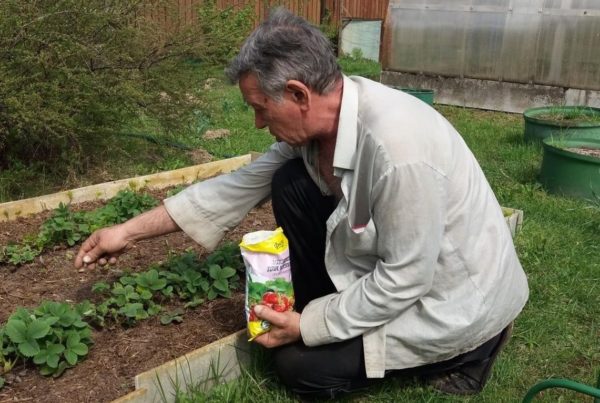
- sulfur;
- magnesium;
- phosphorus;
- potassium;
- nitrogen;
- boron.
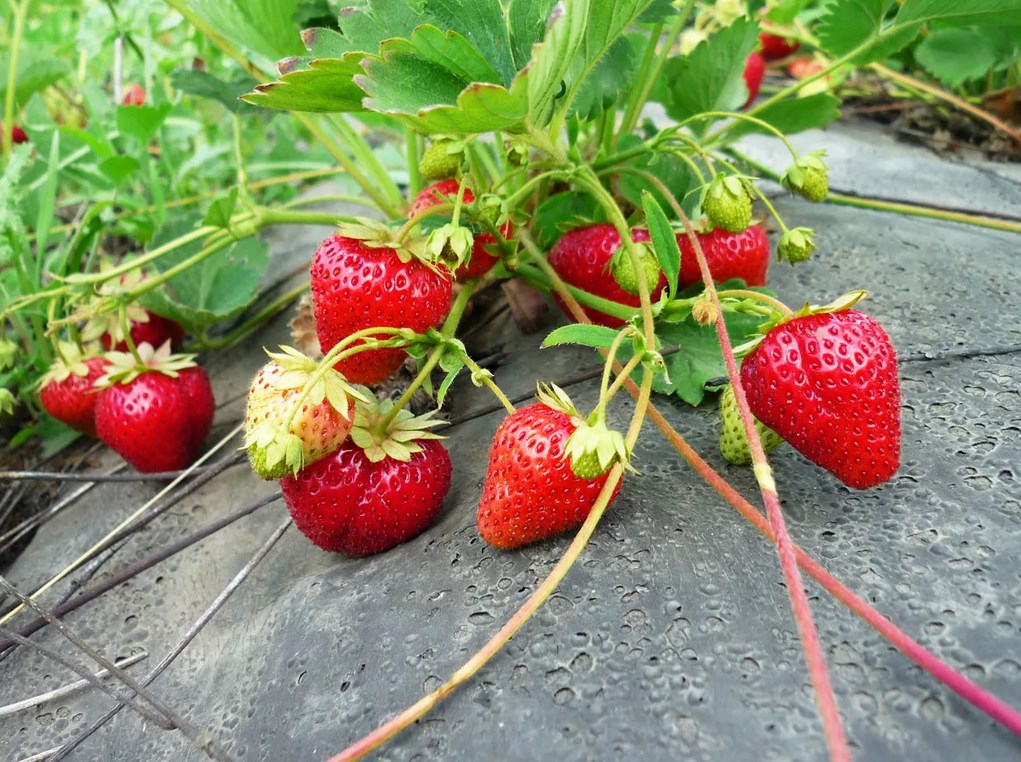 You may be interested in:
You may be interested in:No less useful are iron, manganese, zinc. Silicon and humates are required to stimulate growth. The receipt of all these components allows you to get beautiful large berries.
For strawberry dressing You can use various fertilizer options:
- mineral (Superphosphate, potassium sulfate, urea, magnesium sulfate, plantafol, azofoska, ammophos, Fertica);
- organic (compost, manure, bird droppings, herbal infusions);
- natural stimulants (Gumat + 7, Gumi, Ekorost, FlorGumat, Sakhalin humate, Tellura);
- organic minerals based on humus and peat (Gumi-omi, giant, bionex);
- wood ash;
- micronutrient fertilizers.
Do not use fertilizing fertilizers, which contain chlorine. It is necessary to choose compounds in which this element is not present.
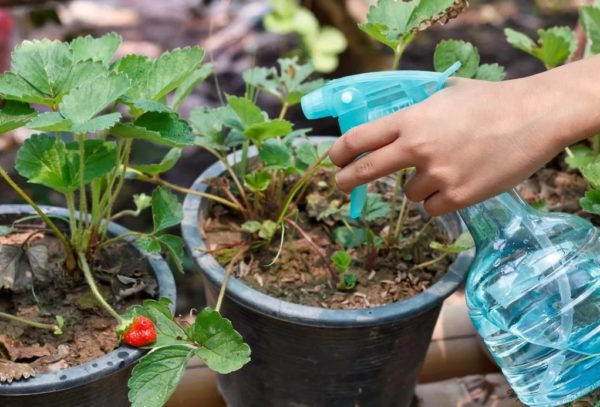
The best feeding scheme
Fertilizing is performed throughout the growing season. At least three top dressings should be performed:
- immediately in the spring to build green mass;
- during flowering and the formation of berries;
- after fruiting.
Each top dressing has its own specific goals that help maintain soil nutrition.
First feeding
One of the most important top dressings, it is carried out in early spring. Make nitrogen-containing compounds. They stimulate the growth of green mass and contribute to the restoration of plants after winter.
There are many options for the first spring feeding.
- In a bucket of water bred 2 tbsp. rotted manure or bird droppings. The mass is left for 2-3 hours. 0.5-1 l of water is poured onto each bush. You can add to the composition of 1 tbsp. l ammonium sulfate.
- From bird droppings preparing concentrate. It is bred with water in a ratio of 1: 1. The mass is insisted for 7 days. The resulting composition was adjusted to 15 l with water.
- On a bucket of water add 1 tbsp. l nitrofosks;
- A bucket of chopped nettles is poured with warm water, left to ferment for 3-4 days.
- In 10 liters of water, 1 tbsp. ash, 1 tsp boric acid, 30 drops of iodine.
Manure and chicken droppings are used very carefully, since excess can burn strawberry bushes.
Second feeding
Be sure to make fertilizers a second time before flowering begins.The plant spends a lot of energy on the formation of flowers, so you need to restore the nutrient components in the soil. For subcortex, complex mineral compositions are used, based on which potassium predominates.
You can water the bushes with a solution of nitrophoska. In a bucket of water bred 2 tbsp. l the drug. To enhance the effect in the solution add 1 tbsp. l potassium nitrate. The composition is mixed until the fertilizers are completely dissolved and strawberries are poured with a rate of 1 liter per plant.
Third feeding
One more fertilizer application is carried out at the end of July, when one part of the main crop has already been harvested. At this time, the formation of flower buds begins for the next season, the plant forms a new root system. It is easier for a strong plant to endure winter and recover next spring.
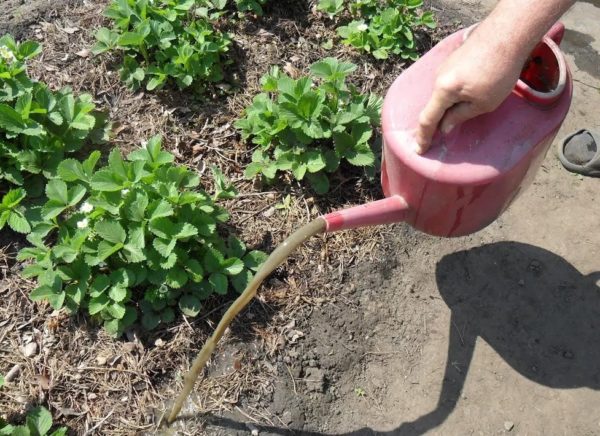 At this time, it is necessary to introduce potassium and trace elements into the soil.
At this time, it is necessary to introduce potassium and trace elements into the soil.
You can use the following options for feeding.
- In 10 liters of water, 2 tbsp. l potassium nitrate.
- 100 g of wood ash is added to a bucket of water.
- For 10 liters of water, take 1 tsp. potassium sulfate and 2 tbsp. l nitrofoski.
- In 10 liters of water, 1 tbsp. vermicompost. The composition is insisted 1 day, when irrigated, diluted with water in a ratio of 1: 1.
Watering with any of the options is performed with the calculation of 0.5 l for each bush. Top dressing is performed in wet soil.
Fertilizing when growing strawberries is necessary throughout the growing season. Nutrients in different periods of growth perform various functions. If the soil is not too nutritious, then top dressing is carried out with a frequency of 2 weeks.

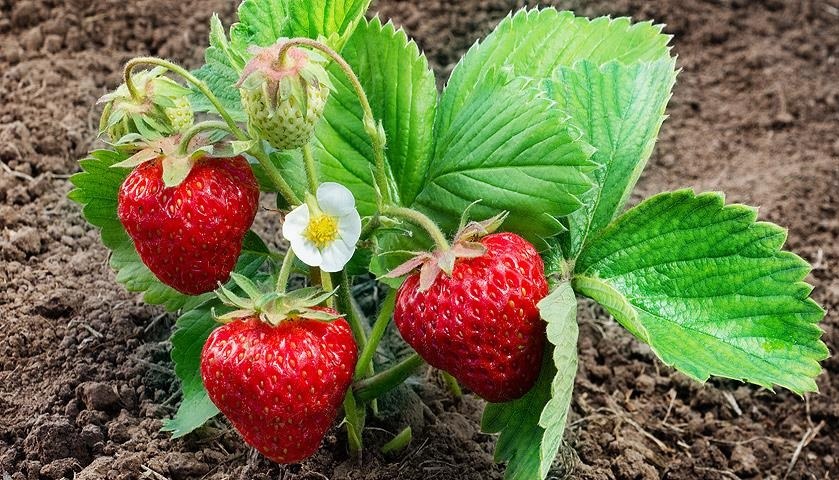
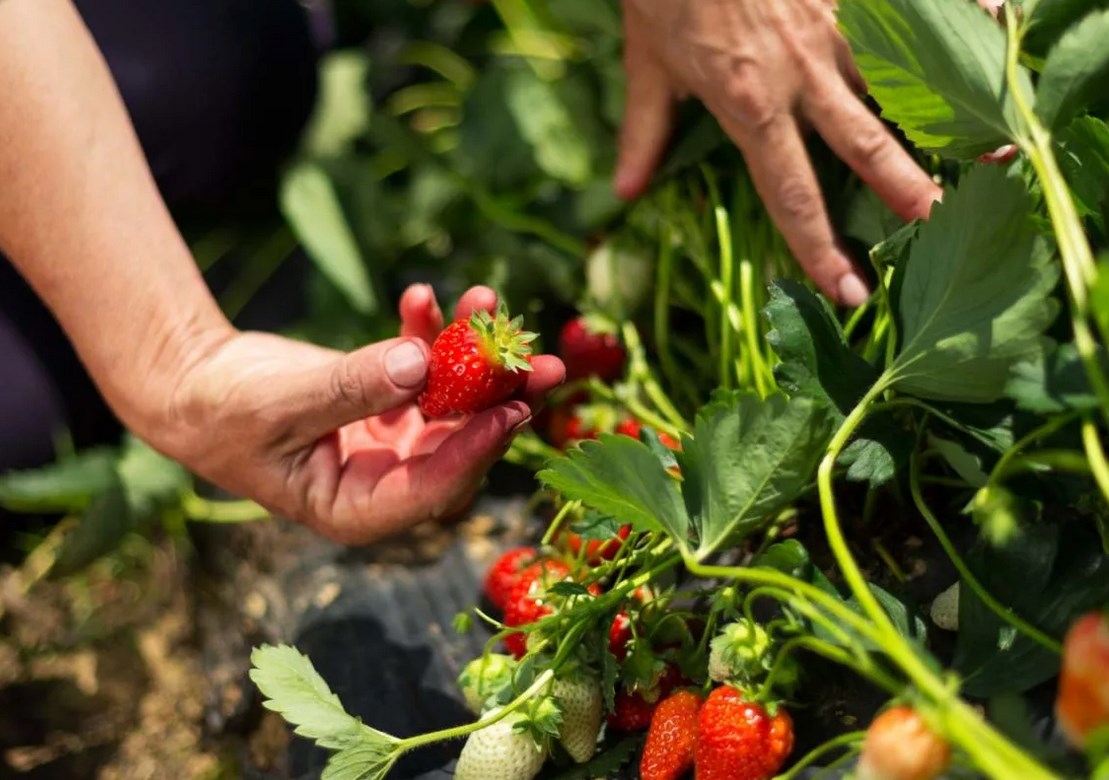
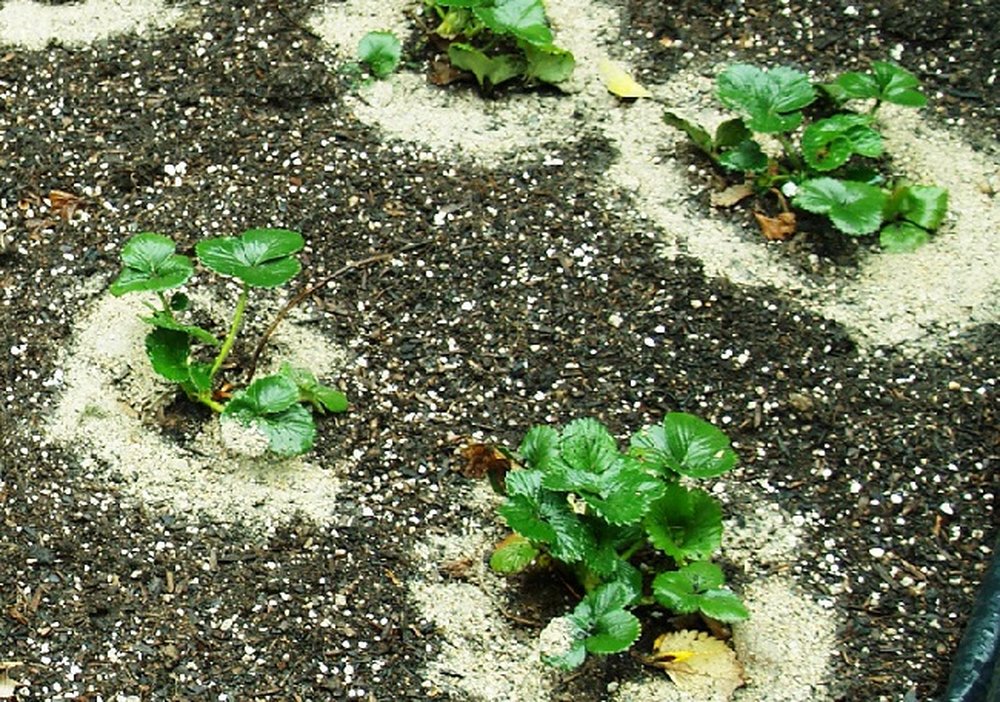 When to plant strawberries for seedlings from seeds in 2024
When to plant strawberries for seedlings from seeds in 2024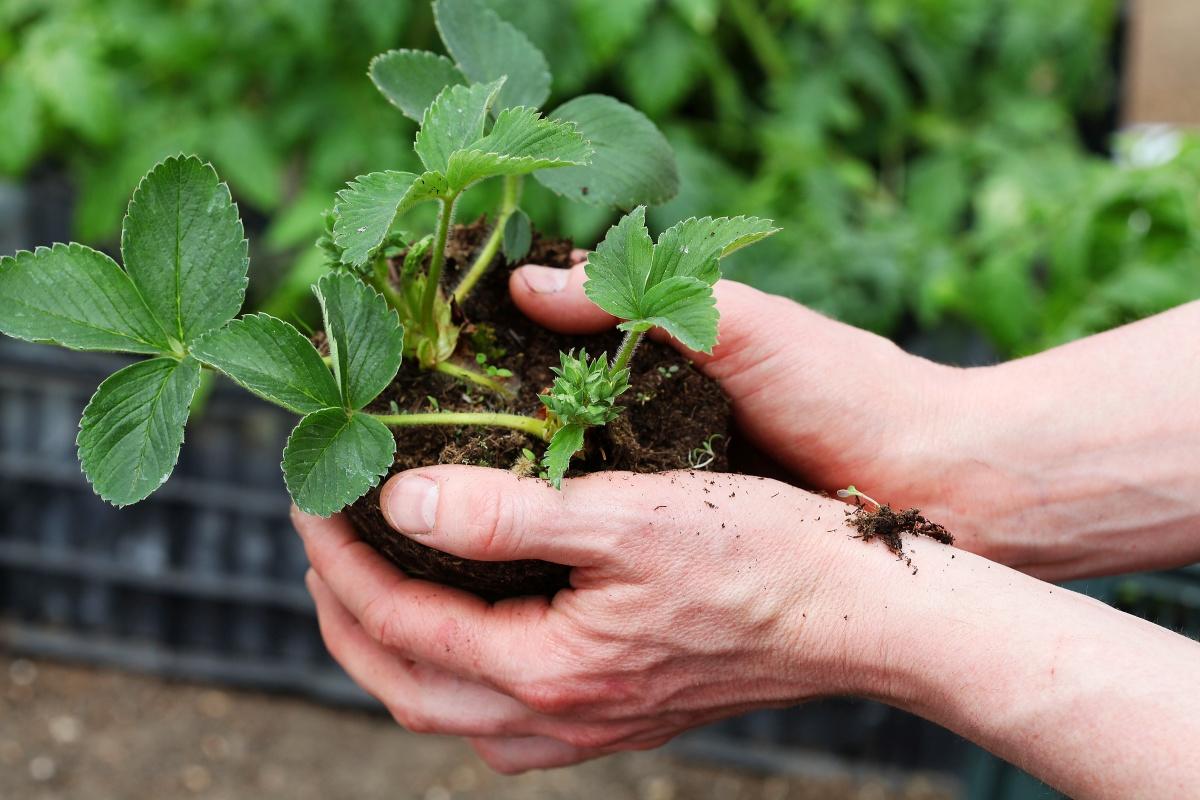 What month is better to choose for a strawberry transplant in the fall
What month is better to choose for a strawberry transplant in the fall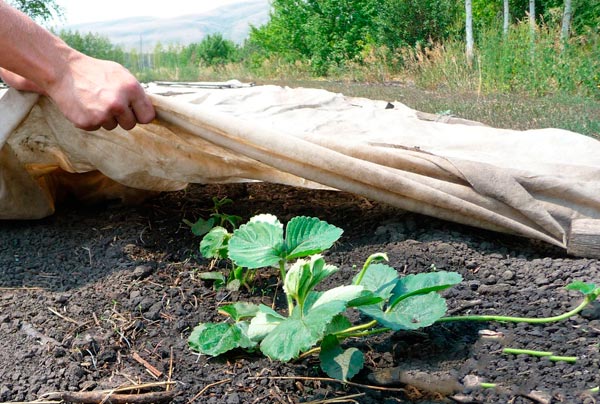 How to cover strawberries for the winter
How to cover strawberries for the winter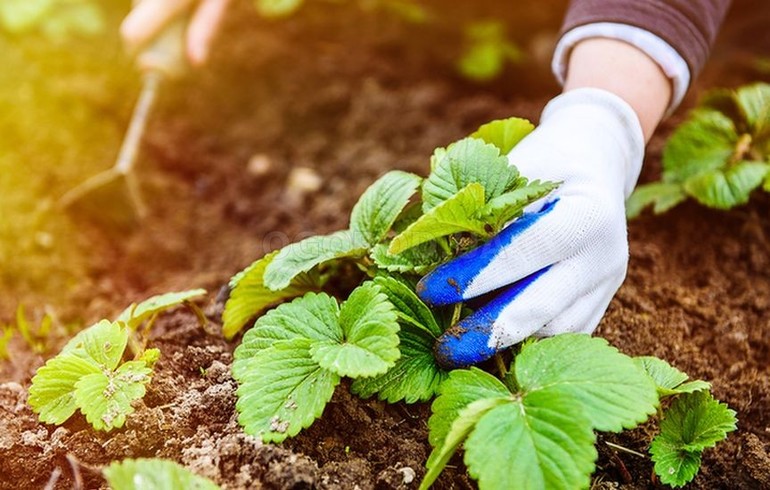 Proper care and pruning strawberries in the fall in the suburbs
Proper care and pruning strawberries in the fall in the suburbs